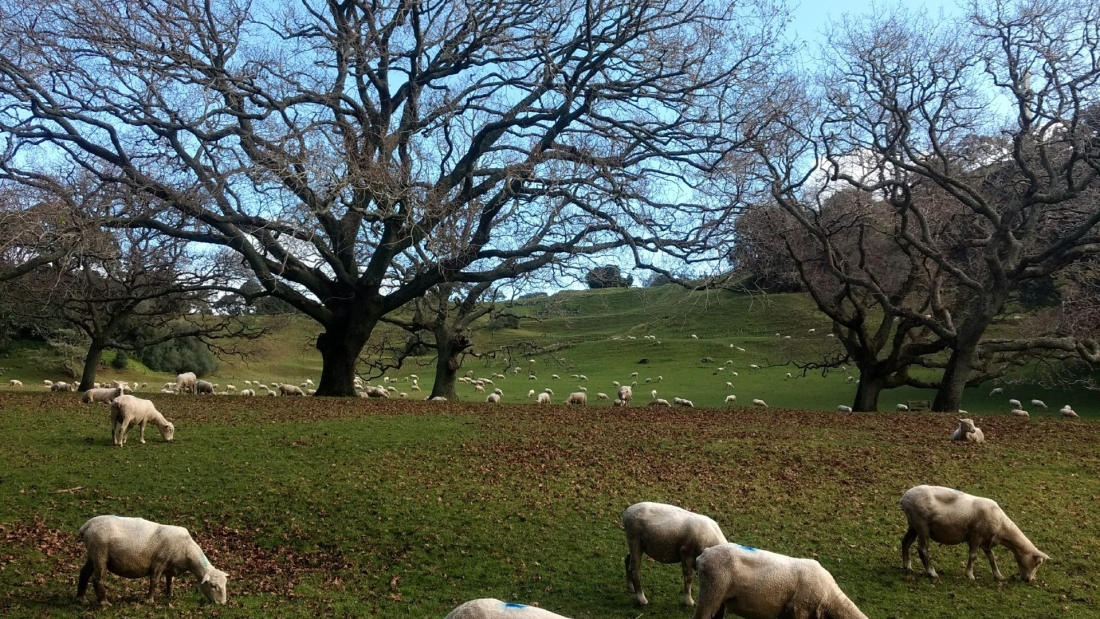A couple of nights ago, my flatmate Em and I were discussing the ongoing farmer protests in France when I heard an anecdote about civil disobedience. Em has been actively following the news about the political climate there, partly because he was planning to travel to the south of the country to escape the winter in Montreal, and partly because of Quebec’s ties to France. There have been a few political movements in the recent past, from the public workers’ strike to the anti-police demonstrations. The latest group to take to the streets is the peasants who are protesting falling produce prices, European free trade laws and environmental regulations.
Our discussion followed a similar (and recurring) theme: When and how the anti-capitalist revolution will come about (I admit thinking about such grand schemes is a failing that needs addressing). We had picked up the topic after watching HyperNormalisation, a BBC documentary by Adam Curtis, that refers to the state where people know they are in a corrupt system but do not see an alternative outside of it. Perhaps more on that some other time. First, the anecdote.
Em’s sheep
A lot of Em’s stories involve sheep. This is not surprising for someone who was a shepherd for a decade. Em worked in market research in Montreal until one fine day in the early 2000s when he decided to drop everything and move to Provence, the south of France, to raise sheep. With no background in animal husbandry or agriculture, he apprenticed, learnt the ropes and became a shepherd. If the whole story sounds cinematic, that is because it is. Em wrote a novel based on his life as a shepherd which became a local bestseller and is now in the final stages of becoming a movie. Anyway, I digress.
In France, if you raise animals, you need to ear tag them. Besides allowing shepherds and ranchers to resolve any ownership issues, these RFID tags allow the state to identify and track animals. My guess is that should a disease outbreak happen, the authorities will be able to get to the source quicker. The general rule is to tag one ear, however at some point, it was decided that this wouldn’t suffice anymore. Owners now needed to double tag. While whether this was a random progression of bureaucratic processes or a more concerted lobbying effort is up for debate, what is true was that there was only one company manufacturing these tags in France and it saw a massive increase in orders, according to Em.

At the time, a tag reportedly cost two euros apiece but if you have a thousand sheep, that can be quite a cost, especially for small farmers. To them, this was another straw on the back of an already straining camel. The effect was that farmers simply stopped adhering to the law en masse. According to Em, the fiercely independent Gaulois spirit of the French and the solidarity from the authorities meant enforcing such a law became difficult.
Our discussion brought us to the issue of small farmers being strong-armed by laws designed for industrial food production and animal rearing, both in Canada and now slowly in France. For instance, if a farmer decides to raise cattle or sheep in Canada, they usually do not have the right to slaughter the animal themselves. Food safety laws require you to transport your animals to a slaughterhouse which can often be far from the farm. This not only increases the cost involved but also stresses the animal due to being taken away from their homes (that then affects the taste of the meat, which is in itself a question of the ethics of consuming animals).
Story idea: Accelerationist lobbying
Our theory was that the tag-making corporation wanted to make more profits, and thus lobbied the government to change its laws. Perhaps it had been indulging in such lobbying for years before things went sideways. We postulated that if such an act of civil disobedience could come about as a result of greedy corporate lobbying, perhaps similar results could be catalysed by a group of leftist lobbyists. Imagine a lobbying firm run by accelerationists: outwardly, the double agents work for corporate interests but deep down are only doing it to bring about the eventual downfall of capitalism. Their objective is to create dubious case studies to convince governments to change rules, and in the process wear out the people enough to revolt.
I could probably turn it into a script.
Other pockets of civil disobedience
In recent years, there have been several instances of civil disobedience in our societies. The COVID-19 pandemic saw a range of disobedience movements, from the occasional flouting of curfews and breaking of bubbles, to the total rejection of vaccines. In less extreme cases, it takes on onerous bureaucratic ordinances. For instance, several North American city municipalities have laws preventing you from replacing a water-guzzling front yard lawn with vegetable plants. Diaspora Indians in Canada and elsewhere would know of tiffin services that deliver a full meal to your place every day, coming to the rescue of young men who have never learnt to cook (because, patriarchy). Such services are home-based enterprises which would almost certainly never be able to abide by health and safety regulations that restaurants and other food production facilities are subjected to. However, they persist because people trust each other, and that’s all it takes to function at that scale. The question really is how much momentum these movements will generate, and whether that will be enough to bring about major changes.I know, I had promised a quick read and it really is shorter than the last one. Anyway, more on the revolution and other pertinent matters soon. Tata!
